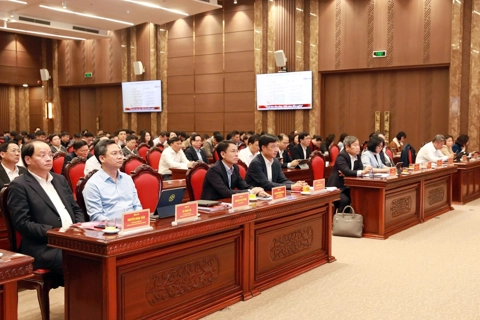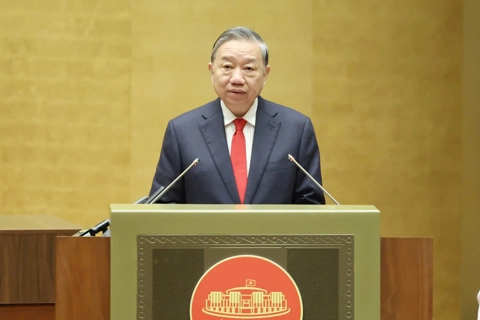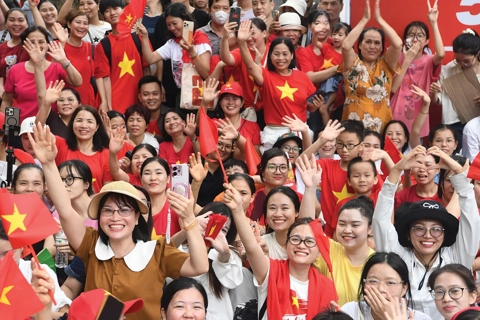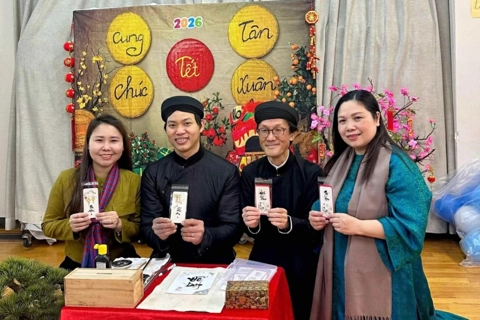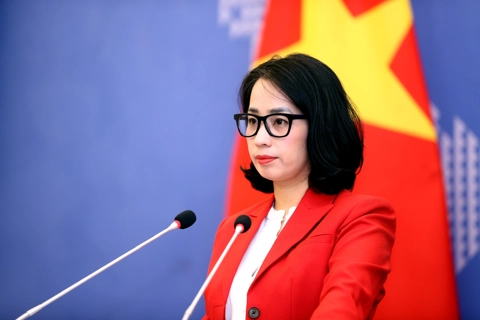Vietnam taps diaspora for tech future, says Prime Minister in Paris
Through institutional reforms and technological ambitions, Vietnam is calling on its overseas Vietnamese to contribute with their expertise, skills, and leadership, as well as their emotional support.
THE HANOI TIMES — Prime Minister Pham Minh Chinh reaffirmed the government’s strategic direction of leveraging the collective intelligence of the diaspora to advance Vietnam’s mastery of critical technologies.
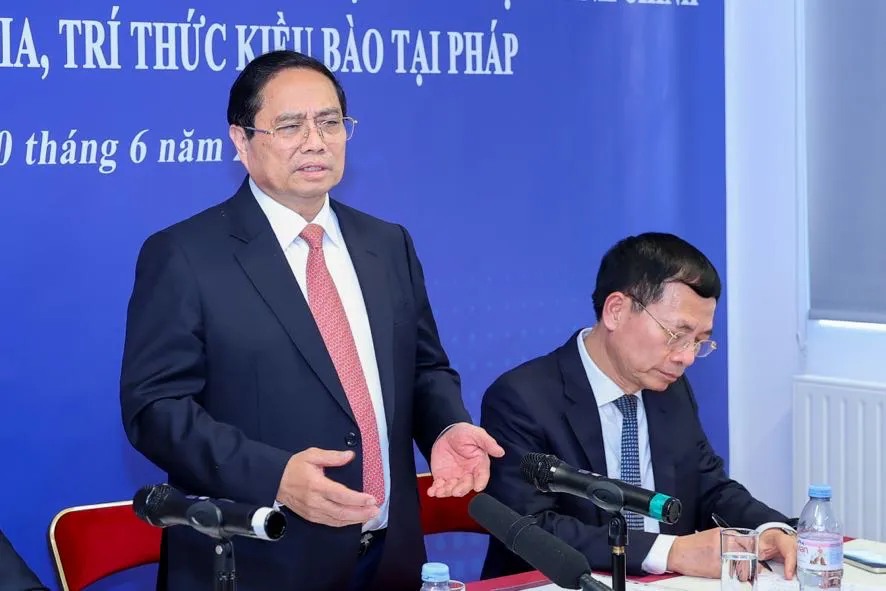
Vietnam's Prime Minister Pham Minh Chinh meets France experts of Vietnamese origin in Paris on June 10. Photo: Nhat Bac/VGP
Chinh shared his view with prominent overseas Vietnamese scientists and experts working in France in a landmark gathering at the Vietnamese Cultural Center in Paris on June 10, part of his official trip to Europe.
The Prime Minister’s working session with the intellectual diaspora drew participation from a high-profile delegation of government officials and Vietnamese professionals working at leading institutions such as Électricité de France SA (EDF), the French Alternative Energies and Atomic Energy Commission (CEA), Institut Polytechnique de Paris (Polytechnic Institute of Paris), Thales Group, and the French National Railway Company (SNCF).
During the meeting, experts shared insights on key strategic sectors, including nuclear power, semiconductors, artificial intelligence (AI), and high-speed rail. They confirmed that overseas Vietnamese are willing and ready to contribute to Vietnam’s technology-driven future.
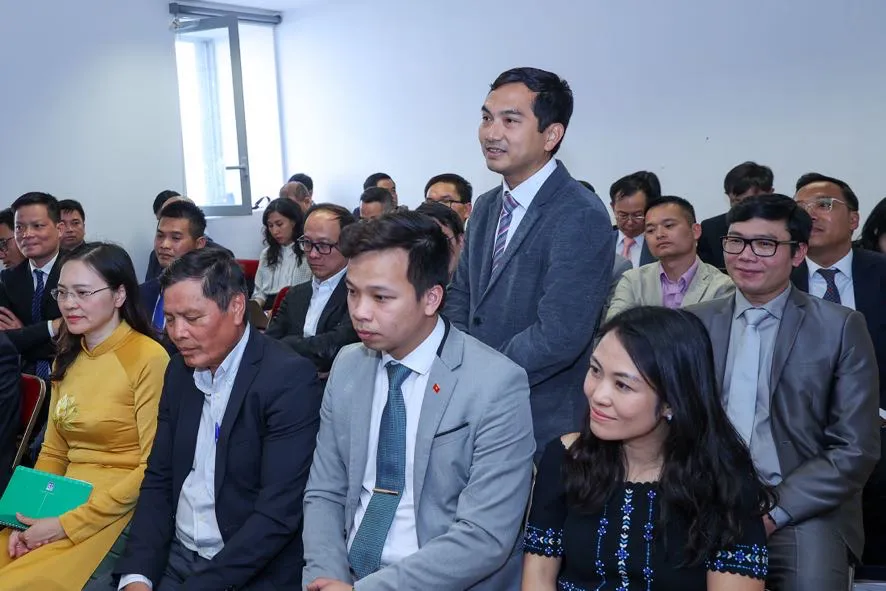
Bui Nguyen Hoang, a nuclear power plant design and management specialist at Électricité de France SA (EDF) and Chairman of VietNuc. Photo: Nhat Bac/VGP
Independent and self-reliant in technology
In his address, Prime Minister Chinh said that Vietnam is determined to build an independent and self-reliant economy deeply integrated with the global system.
“To grow our economy by double digits in the coming years, we must drive breakthroughs in science, technology, innovation, and digital transformation,” the prime minister said. “These are missions we must undertake, are undertaking, and must succeed at.”
He said that path requires a shift from engineering, procurement, and construction (EPC)-based models to those focused on technology transfer, R&D, and domestic capability-building.
He called on experts to suggest specific projects related to nuclear power and AI training to semiconductor development, and high-speed railway systems.
PM Chinh also announced the government’s intent to commission specific projects with the support of experts and businesses. “Whatever support you provide to the country is invaluable. We will mobilize our budget as needed to cover the rest,” he affirmed.
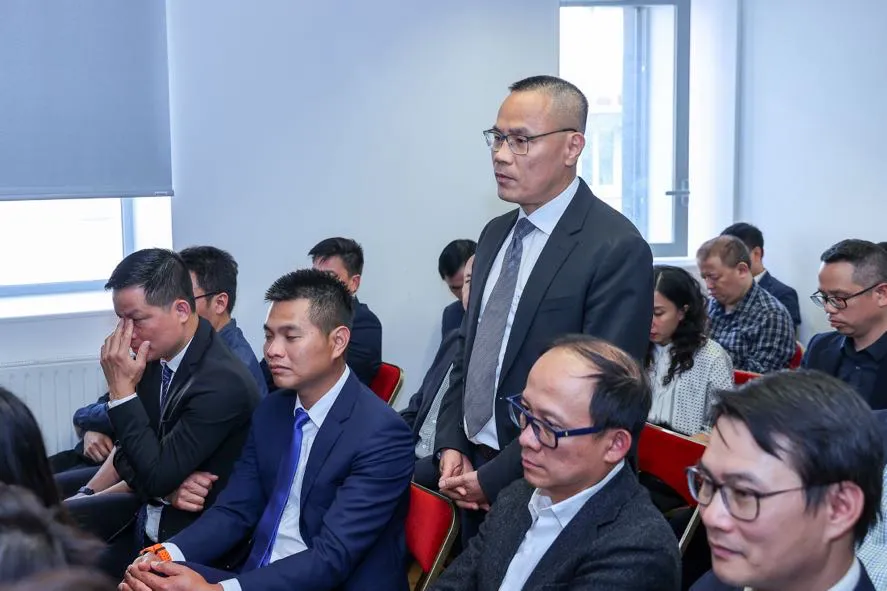
Prof. Nguyen Van Tam, Acting Chair of Computer Science, Data, and Artificial Intelligence at Polytechnic Institute of Paris. Photo: Nhat Bac/VGP
Prominent experts of Vietnamese origin in France
The meeting featured several notable attendees, including Bui Nguyen Hoang, a nuclear power plant design and management specialist at EDF and Chairman of VietNuc, a network of nearly 100 Vietnamese atomic scientists and experts based overseas.
“Our members have been involved in designing and constructing major nuclear facilities across Europe,” Hoang shared. “VietNuc is ready to support Vietnam’s nuclear program through safety culture education, international collaboration, expert consultation, and workforce training.”
He highlighted the network’s potential to facilitate technology transfer and link Vietnamese research institutions with global labs and companies. “We must elevate Vietnam’s nuclear capacity not just technically but also culturally and institutionally,” he said.
Meanwhile, Prof. Nguyen Van Tam, Acting Chair of Computer Science, Data, and Artificial Intelligence at Polytechnic Institute of Paris, echoed the spirit of readiness.
“I am honored by the prime minister’s request and am ready to help implement a program to train the first cohort of 100 Vietnamese AI experts,” Prof. Tam said. He proposed a future where Vietnam combines Western scientific rigor with Eastern philosophical wisdom in shaping the ethical and societal frameworks of AI development.
At the meeting, Minister of Science and Technology Nguyen Manh Hung announced that the government will allocate at least 3% of the national budget for science and technology. Of this sum, 40%–50% will be dedicated to 11 priority technologies, including those discussed during the meeting.
“We hope experts will lead and shape national programs by either returning to Vietnam, staying abroad as strategic consultants, or forming partnerships with global institutions,” the minister stated.
He added that scientific advancement must go hand-in-hand with strong institutions, efficient infrastructure, and streamlined regulatory environments. “We must turn our policy frameworks into competitive advantages.”
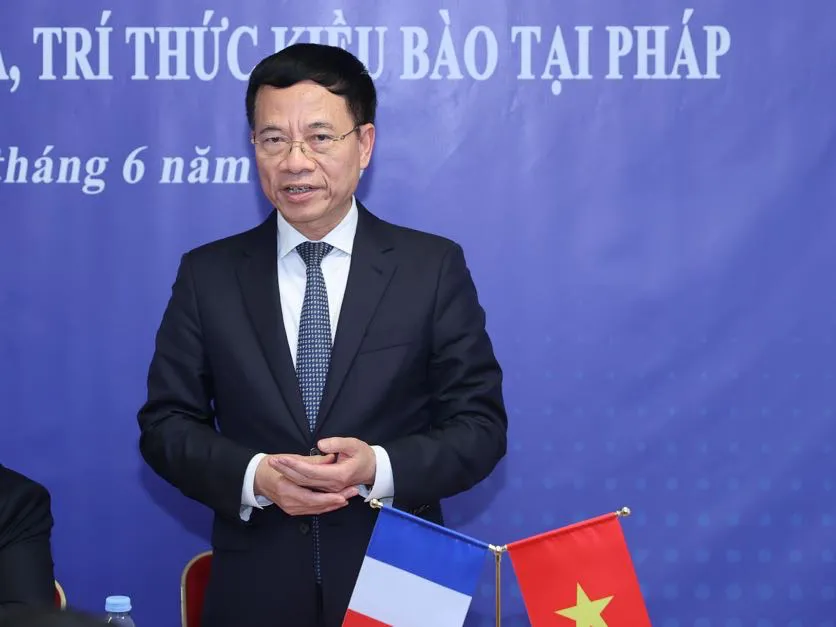
Vietnam's Minister of Science and Technology Nguyen Manh Hung at the meeting. Photo: Nhat Bac/VGP
Building a global Vietnamese innovation ecosystem
The dialogue in Paris is part of a larger momentum. Over the past decade, Vietnam has recognized the untapped potential of its diaspora and called for their support in national development through not only remittances but also expertise, innovation, and entrepreneurship.
Vietnamese professionals in Silicon Valley, Tokyo, Berlin, and Sydney are already active in fields like fintech, biotech, climate tech, and green energy. The government has supported this trend through initiatives like the Vietnam Innovation Network, which links overseas scientists with domestic R&D agencies, and tech startup accelerators aimed at returning talent.
At the meeting, Prime Minister Chinh urged experts to participate in shaping policies on infrastructure, talent ecosystems, and technology standards. “One meeting cannot solve all problems. We need your continuous feedback and your vision for Vietnam’s future.”
For many overseas Vietnamese experts, the desire to contribute is not just sentimental, it’s a shared mission. Many of them, like Bui Nguyen Hoang and Nguyen Van Tam, are already working with Vietnamese universities, ministries, and students to develop sustainable pathways for capacity building and innovation.
“It’s our responsibility to give back to the country that nurtured us, and we believe that our knowledge is most valuable when applied to real-world development,” Hoang said.
This commitment aligns with Vietnam’s broader shift toward proactive and innovation-led governance. By embracing and integrating global Vietnamese talent into national strategies, the country has positioned itself as a leader in key technologies.
With institutional reforms and ambitious technological goals, Vietnam has been seeking contributions from its overseas Vietnamese with a message that translates to: The homeland needs you, not just your heart, but also your mind, skills, and leadership.
To make full use of this overseas treasure trove, Vietnam is laying the groundwork for a truly global innovation network of those rooted in Vietnamese identity and powered by international excellence.
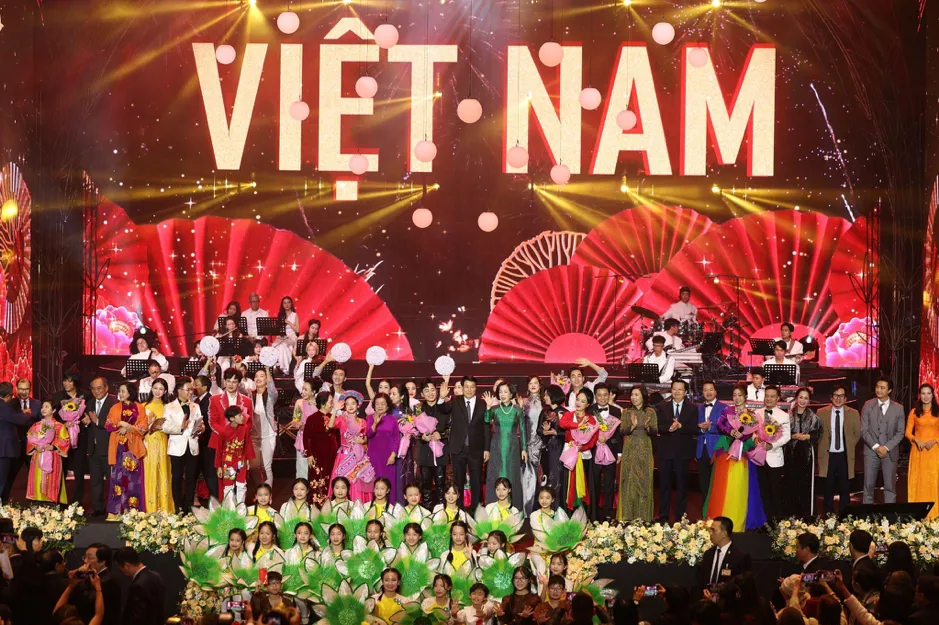
Overseas Vietnamese gather at the Home Spring 2025 with the reception of President Luong Cuong and his spouse. Photo: VOV







